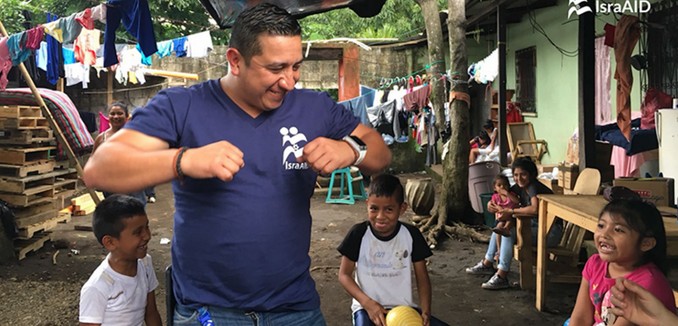The need to train health, mental-health and engineering professionals in disaster response for quick deployment around the world is behind the Los Angeles launch of the new IsraAID Humanitarian Professionals Network(IHPN).
Founded in Israel in 2001, IsraAID is a non-governmental organization that provides lifesaving emergency relief and long-term, sustainable solutions for populations affected by natural disasters, epidemics and post-conflict situations. To date, IsraAID has helped 2 million beneficiaries in 49 countries.
Trained IHPN teams “will leverage Israeli innovation, work in full collaboration with local partners, and educate the public and professionals on disaster prevention and relief,” said Seth H. Davis, Executive Director of IsraAID (US) Global Humanitarian Assistance, an independent 501c(3) organization.
Following a kickoff event January 10 in Los Angeles and another at the end of February in the San Francisco Bay Area, IHPN members from the target professions will enter a one-year IsraAID disaster-response training program in order to equip them with the skills and knowledge to deploy to disaster zones locally and globally as needed.
“We are bringing Israeli know-how to people in need in the world,” says Farah Shamolian, IHPN program director. Born and raised in LA, Shamolian has a master’s degree in public health and took part in IsraAID relief missions to Greece and Guatemala last year.
“As a Persian Jewish woman whose parents were refugees, working with refugees with a Jewish organization is very powerful,” Shamolian tells ISRAEL21c, emphasizing, however, that professionals of any faith are welcome to become involved in IHPN. “This is an opportunity to apply their skills in a global way.”
Specific professionals sought by IHPN are physicians, public-health experts, nurses, social workers, psychologists, expressive-arts therapists, behavioral therapists, water, sanitation and hygiene (WASH) experts and water, environmental or civil engineers.
Trained IHPN members will be added to IsraAID’s deployment schedule in areas where the organization has long-term programs. “For example, we might need three doctors with a certain specialty to go to Kenya,” explains Shamolian.
She is planning to expand the monthly IHPN training lectures to New York by the end of 2019, and later possibly to Miami.
(via Israel21c)
[Photo: Israel21c ]




